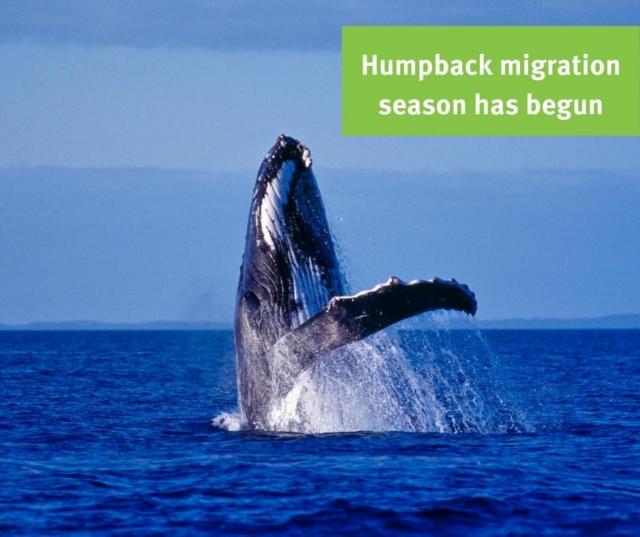
Its time to keep an eye out for the whales now the humpback migration season has begun with Double Island Point Lighthouse offering some of the best views as they pass by.
According to the Department of Environment and Science (DES) during whale season, more than 25,000 whales are expected to swim past Queensland from now until November as they travel from and return to the Southern Ocean.
“Many of Queensland’s national parks offer the perfect viewing platform with the best times to spot their breaches and blows in calm morning conditions or late afternoon light.
“If you’re out on the water, it’s important to give these powerful marine mammals their space. There are a number of rules in place to make sure marine mammals can live naturally in Queensland waters without being disturbed, while at the same time allowing us to watch them in safety.“
The DES said having approach distances in place reduces the risk of disturbing whales or dolphins and applies to boats, prohibited vessels (including jetskis and hovercraft, aircraft (including helicopters ) and people who are in the water.
The ‘caution’ zone is an area surrounding a whale or dolphin in which boats cannot travel at speeds of more than six knots or speeds that create a wake. The caution zone extends out 300 metres from a whale.
Within a caution zone there are areas designated as ‘no approach’ zones that boats cannot enter. These are the areas closest to an animal and directly in front of and behind an animal. For a whale, the no approach zone surrounds the animal for 100 metres and extends 300 metres in front of and behind the animal.
“Saving the humpback whale from extinction is one of the world’s great conservation success stories, and it’s wonderful that we can share the seas with these beautiful creatures.“
Report any sick, injured or dead marine mammals or marine turtles by contacting us on 1300 130 372 and follow the advice of wildlife officers.





